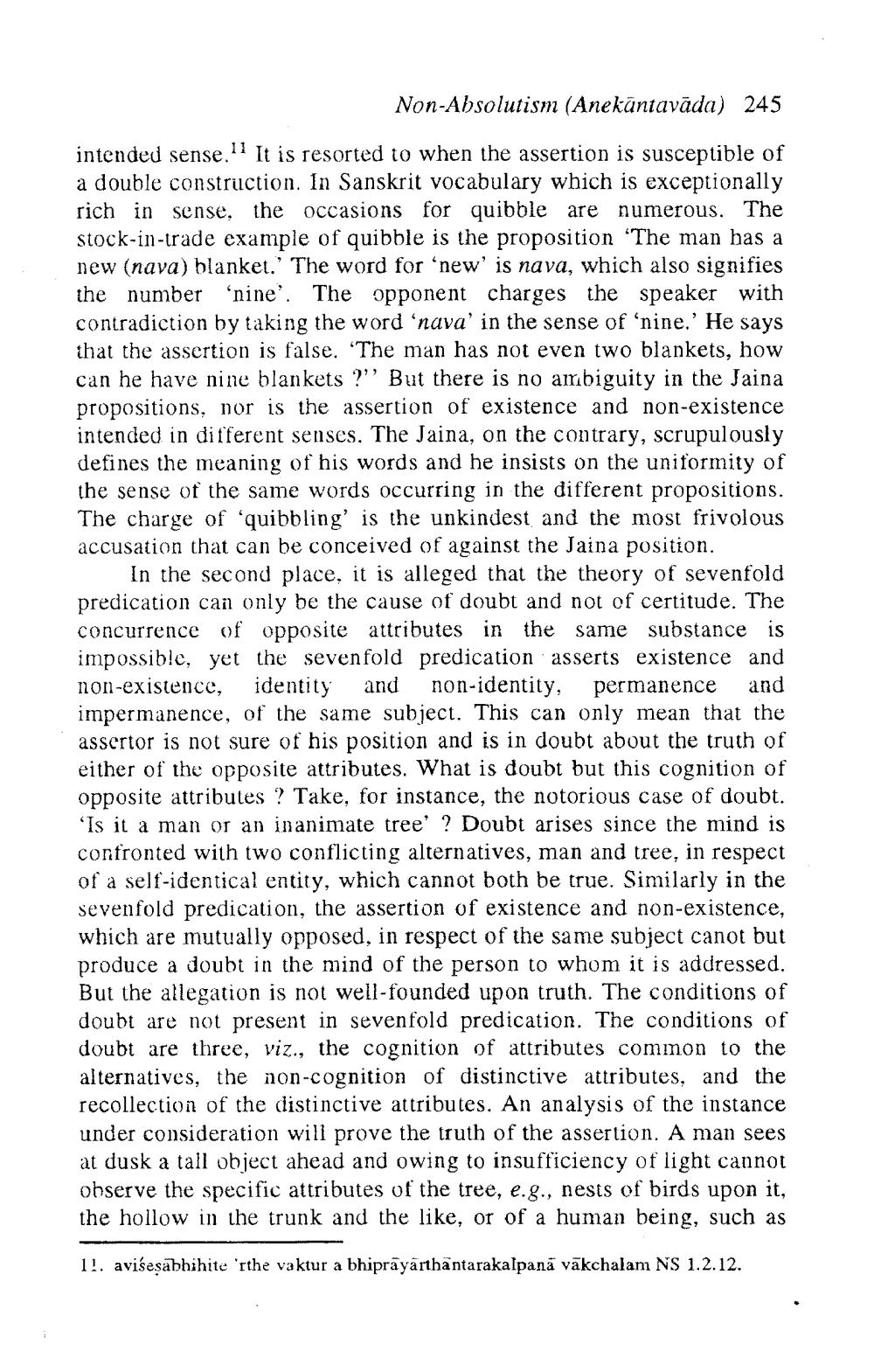________________
Non-Absolutism (Anekāntavāda) 245
intended sense. 11 It is resorted to when the assertion is susceptible of a double construction. In Sanskrit vocabulary which is exceptionally rich in sense. the occasions for quibble are numerous. The stock-in-trade example of quibble is the proposition 'The man has a new (nava) blanket.' The word for 'new' is nava, which also signifies the number ‘nine'. The opponent charges the speaker with contradiction by taking the word 'nava' in the sense of 'nine.' He says that the assertion is false. "The man has not even two blankets, how can he have nine blankets ?'' But there is no ambiguity in the Jaina propositions, nor is the assertion of existence and non-existence intended in different senses. The Jaina, on the contrary, scrupulously defines the meaning of his words and he insists on the uniformity of the sense of the same words occurring in the different propositions. The charge of 'quibbling' is the unkindest and the most frivolous accusation that can be conceived of against the Jaina position.
In the second place, it is alleged that the theory of sevenfold predication can only be the cause of doubt and not of certitude. The concurrence of opposite attributes in the same substance is impossible, yet the sevenfold predication asserts existence and non-existence, identity and non-identity, permanence and impermanence, of the same subject. This can only mean that the assertor is not sure of his position and is in doubt about the truth of either of the opposite attributes. What is doubt but this cognition of opposite attributes ? Take, for instance, the notorious case of doubt. "Is it a man or an inanimate tree ? Doubt arises since the mind is confronted with two conflicting alternatives, man and tree, in respect of a self-identical entity, which cannot both be true. Similarly in the sevenfold predication, the assertion of existence and non-existence, which are mutually opposed, in respect of the same subject canot but produce a doubt in the mind of the person to whom it is addressed. But the allegation is not well-founded upon truth. The conditions of doubt are not present in sevenfold predication. The conditions of doubt are three, viz., the cognition of attributes common to the alternatives, the non-cognition of distinctive attributes, and the recollection of the distinctive attributes. An analysis of the instance under consideration will prove the truth of the assertion. A man sees at dusk a tall object ahead and owing to insufficiency of light cannot observe the specific attributes of the tree, e.g., nests of birds upon it, the hollow in the trunk and the like, or of a human being, such as
1!. avisesabhihite 'rthe vaktur a bhiprāyārthantarakalpanā vākchalam NS 1.2.12.




